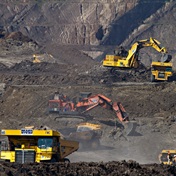
Simon Brown probes a form of corporate asset disposal, weighing its benefits and pitfalls. He cautions that investors should take note if a company they hold goes this route.
Sasol has announced the sale of 16 air-separation units located in Secunda to Air Liquide for R8.5bn. The market very much liked the deal, pushing the share up over 12% at one point on the day before closing over 8% higher.
But there is another side to the story that is less positive. The only customer of these air-separation units is Sasol, as it is an important part of its processes at the Secunda plant. But when Sasol owned these units, the plants either ran at cost, or, if they made any profit, that profit would flow to Sasol. The new owners will now undoubtedly want their newly-acquired plants to be profitable and, as such, Sasol will now pay more for the products. In other words, Sasol’s costs have gone up and profits will be lower – a permanent situation after the disposal.
In a sense, this is a sale-and-lease-back type of arrangement that we often see, which solves short-term problems, but creates long-term issues.
For example, a company may own its corporate head office (or any other plant, property, and equipment). It saves money, even if there is outstanding debt on the asset. It’s a not-for-profit arrangement: the company pays the debt and associated costs to maintain and run the asset – but that’s all. There is no third party owning the assets also looking to make a profit.
On the balance sheet the building, for example, sits as an asset. There is, however, also likely a debt sitting on the liability side of the balance sheet. Ideally, the value of the building exceeds that of the associated debt, especially if the company has owned the building for some time.Now, if the company needs some cash, either to pay down debt, or perhaps for an expansion, it can look to a sale-and-lease-back arrangement.
This would entail selling the building to a third party, which removes the building from their balance sheet, but generates a pile of cash that can be used by the company to pay debt or expand operations. Seemingly a win-win situation.
But now they must lease the building back from the new landlords and that landlord will also demand a profit, much like the Sasol example. The costs for the company have increased, thus in the long term it hurts. But it does plug an immediate cash need.
I used the example of a corporate head office, but as the Sasol deal shows, this sort of arrangement could be an operational plant or even equipment or any other asset sitting on a balance sheet.
The bottom line is that investors should view these sale-and-lease-back arrangements with some scepticism as the gains are short term, while the increased cost is not. Sure, it solves an immediate problem, but at a cost that will go on forever.
So, keep an eye out for these deals and always ask: Why is the company doing it? It may just be a new board or CEO who wants a cleaner structure and decides building management is not their speciality, which is a fair idea. But as a rule, it is seldom a great long-term solution and is rather undertaken due to a stressed balance sheet that almost certainly requires closer scrutiny, as this is a red flag being raised.




 Publications
Publications
 Partners
Partners












